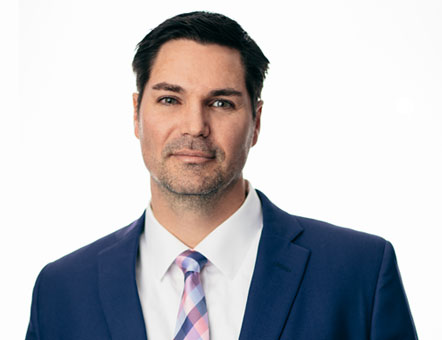Understanding worker’s compensation acronyms – part 2
Share this:
Written by: Justin High
This is the second in a three-part post about the acronyms and terms that are commonly used in a workers’ compensation case. (You can access the first post HERE.) In this series, we look at the “essential elements” of a workers’ compensation claim. A lot of the time, people that are unfamiliar with the industry don’t understand the secondary meaning that a lot of these words have. Everyone knows what an “injury” is in our daily lives, but in the context of a workers’ compensation case, it means even more.
Accident – In the context of a workers’ compensation case, “accident” doesn’t just mean something unfortunate happening. It has a very specific definition which can be found at Neb. Rev. Stat. 48-151(2). This statute defines an “accident” in the context of a Nebraska workers’ compensation claim as “an unexpected or unforeseen injury happening suddenly and violently, with or without human fault, and producing at the time objective symptoms of an injury.” Most of the time, the issues dealing with “accident” come from the requirement that there be “objective symptoms of an injury” at the time of the accident.
Injury – Injury is also defined by the Nebraska Workers’ Compensation Act. In Neb. Rev. Stat. 48-151(4), the statute defines injury as “violence to the physical structure of the body and such disease or infection as naturally results therefrom. . .” This is a complicated way of saying that there has to be some change to the body, even to the slightest degree, that was caused by the accident.
Arising Out Of – When we talk about an injury “arising out of” in the context of a workers’ compensation case, we are really talking about whether or not the risk that caused the injury has any connection to the work the injured employee was performing. This is a very low bar as any connection is sufficient to satisfy the requirement. Only injuries that have no work connection at all can be properly denied because they did not arise out of the injured employee’s work.
Scope/Course – “Scope and course” deal with the time and space limitations of the employment. Simply stated, where and when did the injury happen? If there is any work connection at all, this requirement will be established. For instance, if an injured worker slips and falls in a parking lot where the employer told the employee to park, the requirement is satisfied. Only injuries that happen at a time and place that have no rational relation to the employee’s work can be denied because they did not occur in the scope and course.
Causation – When we discuss causation in the context of a workers’ compensation claim, we are really talking about the relationship to the Accident that happened at work and the Injury or Injuries that the injured worker sustained. In order to succeed in the claim, the injured worker has to provide evidence that the accident caused the injury. Usually, this is done with a combination of testimony from the injured worker and the opinion of the treating physician.
In the third and final post in this series, we will deal with some of the trickier and more confusing terms.
About the author: Justin High

Worker’s Comp attorney in Omaha – How to contact the High & Younes Law Firm
Have a question that we didn’t answer? Get in touch with us today for your complimentary, no-obligation consultation: https://www.hyattorneys.com/ OR by phone: 402-933-3345
A great way to reach us!

